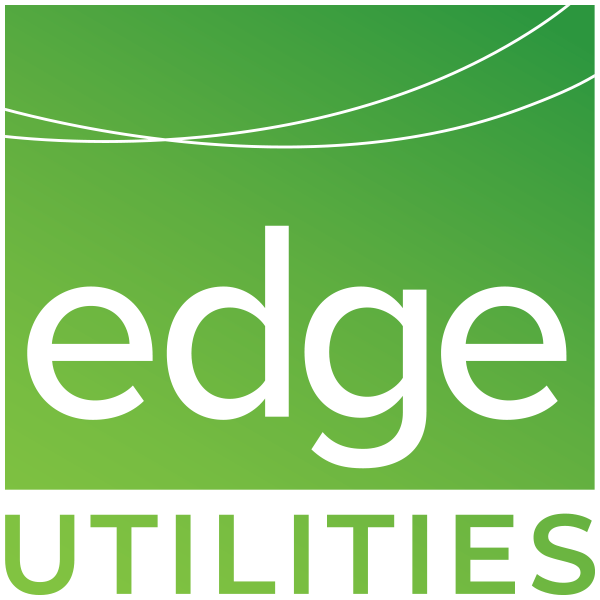We found an article on a retailer’s website titled “Do you use an energy broker? Read this first”. Edge2020 & Edge Utilities Managing Director, Stacey Vacher, thought she would share her view on this topic. Stacey has over 15 years’ experience as a senior energy professional. She has worked with some of the markets largest and most sophisticated energy users.
In the context of consumer procurement, in your view what is the difference between energy brokers and energy consultants?
Energy brokers negotiate deals between buyers and sellers. An energy broker will go to market, often by way of tender, for a consumer’s energy requirements at any given time. They review and present options to the consumer for their selection. A broker lives and breathes tenders and transactions day in day out.
A reputable energy broker knows energy markets, energy products, and which energy provider can provide the best outcome for a given customer, product, and / or portfolio. They can perform market analysis, manage the entire procurement process, and negotiate superior commercial and contractual outcomes.
A broker of this nature lives and breathes energy markets, energy products, market participants, and energy deals, day in day out.
Energy consultants can offer an array of specialist energy services. These may include:
- brokerage
- trading
- strategy development and implementation
- regulatory advice
- energy efficiency and sustainability advice
- price forecasting
Should a consumer use a broker or a consultant?
It depends on what a consumer is trying to achieve. If the objective is to achieve the best deal at the time, a brokerage service can be the most efficient and effective service. If it’s understanding options and what may be the most optimal approach and outcome relative to the objectives of the consumer, a consultant may provide a superior outcome (or in the very least, a reputable energy broker).
Using an expert to navigate the market and provide specialist advice is likely to result in saving a consumer time, headaches, and money.
My advice:
Engage a reputable broker or consultant with an experienced and established team behind them. At Edge Utilities we focus on you, your knowledge, your objectives and your value.
A good broker or consultant utilises:
- their knowledge
- their expertise
- industry partnerships to deliver optimal outcomes to you, the consumer.
Why do most Retailers work with brokers and consultants?
- as a channel to market.
- consumers prefer to provide the service of sleeving fees to consultants
- to protect themselves by ensuring a consumer makes independent and informed decision
- protect a retailer from the intensity of consumer education and enquiries.
Under the Australian Financial Services Licence retailers won’t provide financial advice to consumers.
Do retailers prefer to deal with consumers directly or through brokers or consultants?
I have asked many of our retailer counterparties this question over the years. It’s fair to say retailers ultimately prefer to deal with a consumer directly. They have more control over what customers do and what the retailer can achieve. This includes price / fees, products, risk, and contractual flexibility.
Many retailers will work with brokers and consultants. They acknowledge:
- the benefits a third party brings to their relationship with a consumer
- the role of the broker or consultant working directly with them is to deliver their service to the consumer.
We are starting to see larger retailers be a lot more selective with respect to which brokers or consultants they will work with. Edge Utilities support this move for many reasons. It often means the retailer is more serious about ensuring the broker understands the retailer’s products and objectives, and ensures the broker is introducing consumers and opportunities that stand to benefit from them.
The blanket approach by some brokers of going to retailers to make up numbers in a tender is lazy and ineffective. Brokers should be looking to bring parties together that both stand to benefit from the transaction. This should be done using a superior competitive process, whereby all counterparts are genuinely well positioned to provide the product and / or service to the consumer.
Should brokerage / consultant fees be transparent?
- All fees should be transparent
- Don’t expect transparency across the market.
Edge Utilities brokerage clients are advised that we are engaged on the basis of getting paid via third-party fees.
If an existing client isn’t paying a fee for service, or seeks services out of scope, we ensure the client knows in writing that a deal tabled to them contains:
- brokerage or commission fees.
- the quantum of the fee.
Lack of transparency of brokerage fees is often criticized. As we read in a retailer’s “Do you use an energy broker? Read this first” article.
What’s interesting about this, is a retailer’s fees are unlikely to be transparent and are often rolled into the energy rate. Retailers secure fees on metering and there is absolutely no transparency that they are doing this. Brokers are expected to outline exactly what percentage, cents per kilowatt hour (c/kWh) or total quantum of fees are in a deal. This is a double standard that isn’t going away.
What is frightening is the lack of transparency around risk. At Edge Utilities, we are seeing more and more retail products in the market as retailers jostle for market share, around spot and renewable backed products. These can place an exorbitantly high risk on consumers and may result in volatile and high cost outcomes. Fees are not the fundamental issue for consumers, the risks are. Many of these risks can result in much higher cost outcomes.
If you don’t use a reputable broker or consultant, there’s a good chance you won’t receive the most competitive offer from your retailer. You will potentially expose yourself to higher costs and / or risk and / or inflexible contractual terms.
It’s the broker / consultant’s job to get the very best deal possible, considering commercials, risks, and required contractual flexibility.

